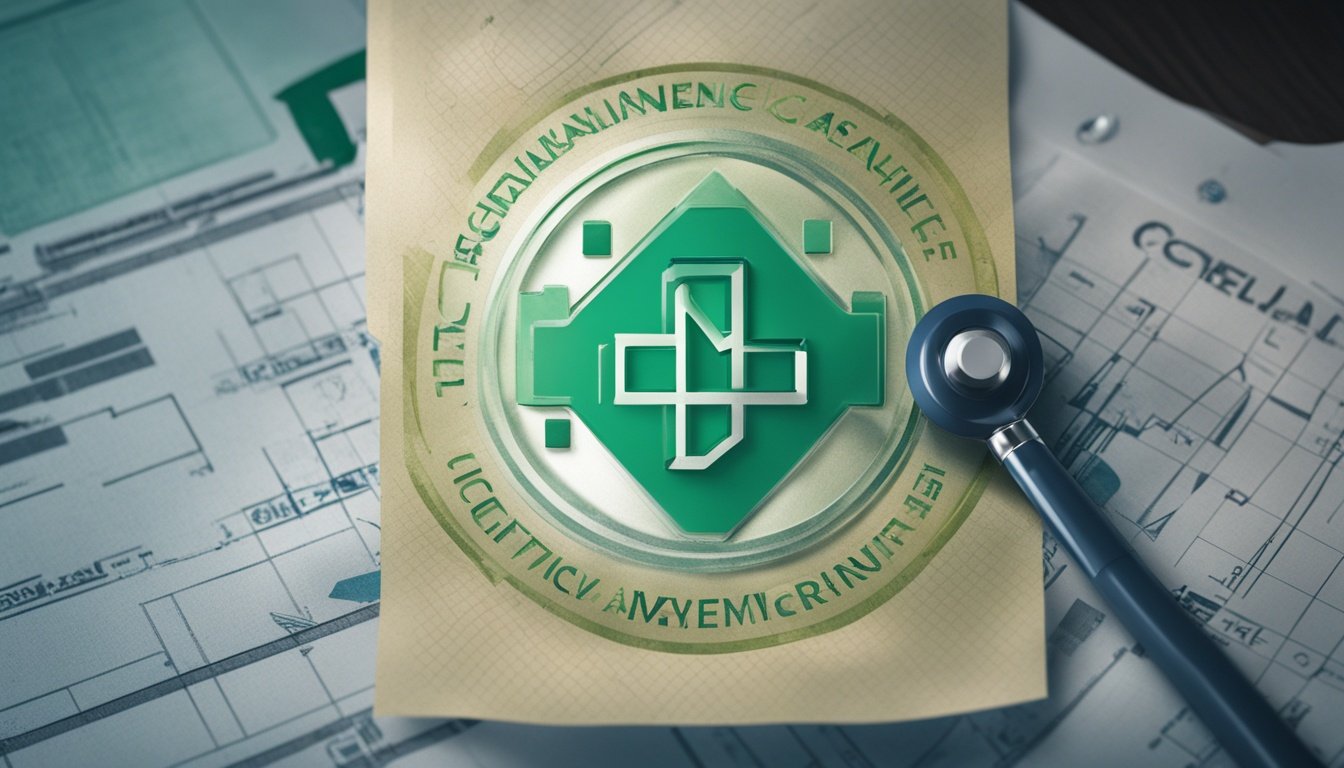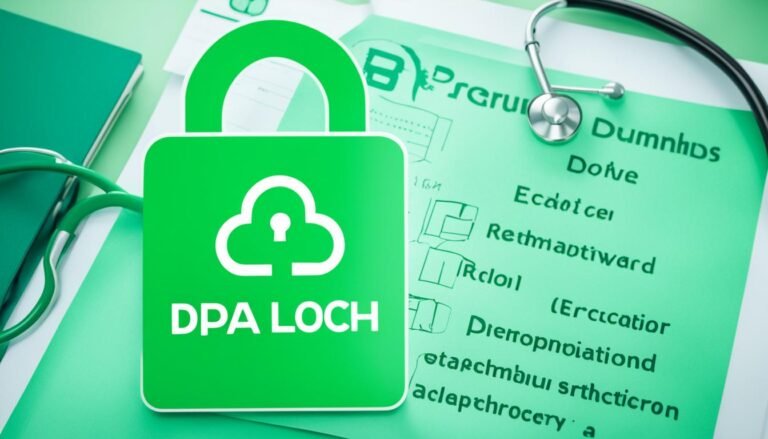Key Compliance Requirements Under the Medical Officer of Health Legislation
Did you know healthcare regulations are vital for health centers? They follow laws like 330(k)(3)(H)(ii) and 42 CFR 51c.104(b)(4). By adhering to these rules, places from nursing homes to hospitals keep their integrity.
Healthcare compliance is very important. Take the need for skilled staff and a top leader, for example. They both play crucial roles in following the rules. Plus, their qualifications and job details must be clear and up to date. If the leader takes a break, their replacement has to be approved.
Key Takeaways
- Compliance with healthcare regulations is essential for health centers to prevent fraud and abuse.
- Detailed job descriptions and qualifications for key personnel are mandatory.
- Approval is required for significant changes in the Project Director/CEO position.
- Health centers must directly employ their Project Director/CEO and ensure their active involvement.
- OIG will release new Compliance Program Guidance specific to different healthcare segments in 2023.
It’s key for health centers to know and stick to healthcare laws. We’ll look closer at the Medical Officer of Health Legislation, its importance, and what it means for providers. Keep reading to understand why compliance is crucial for healthcare success and trust.
Introduction to Medical Officer of Health Legislation
The Medical Officer of Health Legislation is vital for the integrity and safety of healthcare. It focuses on the importance of following medical rules. These rules help keep health standards high and protect patients. It’s crucial to know about importance of healthcare regulations. They are needed to stop healthcare fraud and promote ethical behavior in the industry.
The Role and Importance of Compliance
Compliance in healthcare is extremely important. It stops healthcare fraud and ensures quality health services. Compliance officers help healthcare groups follow strict laws at local, state, and federal levels. This makes the healthcare system trustworthy and safe. Good compliance programs also protect patient privacy and encourage ethical actions.
Compliance officers, equipped with qualifications such as a bachelor’s degree in healthcare administration, business, or related fields, are critical. Many organizations even prefer or require a master’s degree, alongside certifications such as Certified in Healthcare Compliance (CHC) or Certified Compliance and Ethics Professional (CCEP).
| Qualification | Requirement |
|---|---|
| Bachelor’s Degree | Required |
| Master’s Degree | Preferred or Required |
| Certification (CHC or CCEP) | Preferred or Required |
| Experience in Healthcare Compliance | Required |
Historical Context of Health Regulations
The history of health regulations shapes our healthcare today. Starting in 1991, key laws like HIPAA, the Stark Law, and Anti-Kickback Statute formed the basis of healthcare compliance. These laws have become more detailed over time, with support from groups like the Office of Inspector General (OIG) and the Centers for Medicare and Medicaid Services (CMS).
This rule set helps reduce bad practices and increases healthcare quality. By following these laws to stop misuse and waste, healthcare places can avoid big fines and protect their reputation.
Understanding Public Health Regulations
Public health regulations include laws to keep us healthy and protect our privacy. Healthcare providers must follow them carefully to avoid trouble.
Overview of Public Health Laws
These laws go way back. They aim to keep everyone safe and healthy. Some important laws are:
- The healthcare compliance parts added to the United States Sentencing Commission Guidelines Manual in 1991.
- In 1998, the Office of Inspector General detailed what healthcare compliance should involve.
- The Social Security Act (SSA) included Section 1128I, which focuses on certain healthcare facilities following rules.
- Guidance from the Centers for Medicare & Medicaid Services (CMS) like the Medicare Managed Care Manual was also important.
- The Patient Protection and Affordable Care Act (ACA) made sure providers in Medicare, Medicaid, or CHIP have compliance programs.
- In 2003, the HIPAA Security Rule was put in place. It helps protect health information that’s kept electronically.
The Impact on Healthcare Providers
Following public health laws is key for healthcare providers. It makes sure they don’t do anything wrong and that they improve patient care. It also keeps health workers safe.
Healthcare organizations have to follow many rules. They come from places like state Medicaid units and insurance companies. These rules help prevent mistakes in healthcare bills and stop fraud.
To follow the HIPAA Security Rule, healthcare providers must do a lot. They need to look for risks, put security in place, and keep it up. They also need someone in charge of making sure all these security measures are followed.
| Law/Regulation | Focus Area | Year Established |
|---|---|---|
| HIPAA | e-PHI Security | 1996 |
| SSCG Manual | Healthcare Compliance | 1991 |
| OIG Compliance Aspects | Detailed Compliance | 1998 |
| ACA | Provider Compliance | 2010 |
Key Components and Compliance Measures
It’s vital to have strong compliance measures in healthcare. This keeps us safe and follows the rules. We look at three key areas here: mandatory healthcare reporting, quarantine rules, and checking powers.
Mandatory Reporting
Healthcare places in California must follow special rules. When a top boss changes, they have to tell the Department in writing. All the detailed rules about running the place, like checking doctors and keeping medical records, should be shared regularly. This sharing is called mandatory healthcare reporting. It’s all about being open and fixing problems early in how we give healthcare.
Quarantine Protocols
When sicknesses spread fast, like in an epidemic, we must be extra careful. By following the rules on how to quarantine people with diseases, we protect everyone. These rules make sure that sick patients are well taken care of without putting others at risk. Keeping up with the newest quarantine tips is key for hospitals to be ready at all times.
Inspection Powers
A special committee has to work on making sure different medical teams work well together. Nurses’ leaders also get involved.
Officials can check healthcare places to see if they’re doing everything right. These checks help make sure hospitals are safe and follow the healthcare laws. By checking often, we can find and fix any rules not being followed. This means we can keep offering top-notch healthcare for everyone.
Key Compliance Requirements Under the Medical Officer of Health Legislation
Healthcare places have to follow a lot of rules to be legal and ethical. They must stick to certain laws, act ethically, and keep good records. These rules are key for running things well and meeting duties.
Statutory Obligations
Healthcare’s main law duty is to follow the set laws and rules. The Office of Inspector General helps a lot by offering guides and tips. To stay on track, healthcare spots need a compliance plan in place. This ensures everyone knows what to do. These guides help prevent breaking the law.
Ethical Standards and Training
Having strong ethics is vital in the healthcare world. The Health and Human Services Office of Inspector General is a big help. They offer online courses on following rules and staying honest. Tools like the General Compliance Program Guidance are great for learning.
Teaching healthcare workers keeps the moral standards high. This meets the goals of HEAT Provider Compliance Training which pushes to prevent rule-breaking.
Documentation and Record-Keeping
Keeping good records is a must in healthcare. It shows the place is ethical and legal. The HHS-OIG gives out tools and tips to keep correct records. They also have ways for providers to report fraud. This keeps the work honest and open.
Board members also have a big job. They help make sure rules are followed everywhere in the company.
| Compliance Resource | Description |
|---|---|
| Special Fraud Alerts | OIG resources highlighting common fraud schemes. |
| Advisory Bulletins | Updates from OIG on statutory developments. |
| Compliance Training | HHS-OIG educational modules on compliance topics. |
| Toolkits | Guides provided by HHS-OIG to navigate healthcare laws. |
Outbreak Management and Disease Control Measures
Managing outbreaks and controlling diseases is crucial for public health safety. Our recent past shows outbreaks like SARS, the H1N1 flu, and COVID-19. These highlight the need for strong strategies to deal with outbreaks. Disease control in healthcare needs to be fast and effective.
Steps in Outbreak Management
To manage a disease outbreak well, we follow specific steps. First, we quickly find cases and report them accurately. Then, we look into how the disease spreads and its source. After this, we put control measures in place to stop it spreading more. The Joint Commission will strengthen these steps in hospitals by 2024. A new tool will help hospitals improve their disease control practices.
Role of Disease Surveillance
Disease surveillance is key in spotting and responding to outbreaks early. By watching infection data, we can catch new diseases quickly. This lets us act fast to stop the spread. In hospitals, surveillance is in a big plan to prevent infections. It includes training staff well and keeping things very clean. This is vital for controlling infections inside hospitals and out.
Source Links
- Chapter 11: Key Management Staff
- Compliance Guidance
- Regulatory & Compliance – MHA
- The Vital Role of Compliance Officers in Healthcare Organizations
- Healthcare Compliance: Definition and Careers | University of Phoenix
- What Is Healthcare Compliance?
- Summary of the HIPAA Security Rule
- Summary of the Public Health System in the United States – The Future of Public Health
- AFL 20-08
- What Is Regulatory Compliance in Healthcare Industry?
- Navigating Healthcare Compliance Laws: A Comprehensive Exploration
- Compliance
- What Is Health Law – And Why Does it Matter?
- R3 Report: New and Revised Requirements for Infection Prevention and Control for Critical Access Hospitals and Hospitals
- Communicating During an Outbreak or Public Health Investigation | Epidemic Intelligence Service
- Healthcare – Infectious Diseases | Occupational Safety and Health Administration








